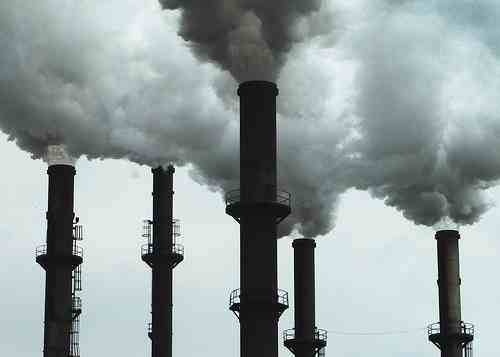

Environment
European air pollution limits still not adequate to reduce health risks
New research has linked air pollution with a higher risk of heart attacks and other coronary events. The study also found that exposure to particulate matter below the current European limits still leads to higher risk.
The research, published in the British Medical Journal, supports lowering the EU limits for particulate matter air pollution. The association between long-term exposure to air pollution and incidence of coronary events remains controversial, despite numerous studies looking at the issue.
The international team of researchers, co-ordinated by the University of Utrecht in the Netherlands, studied over 100,000 people with no history of heart disease. Research participants enrolled in the study from 1997 to 2007 and were monitored for an average of 11.5 years.
After taking into account several other risks factors, including other illness, smoking and socioeconomic factors, researchers found that for each 5 micrograms (one-millionth of a gram) per cubic metre increase in annual exposure to fine-particulate matter (PM2.5) air pollution, there is a 13% increased risk in coronary events.
The current EU limit is 25 micrograms per cubic metre, which the researchers found was not an adequate limit to prevent negative effects on health. The EU limit is also far above the 12 micrograms per cubic metre limit implemented in the US.
“Our study suggests an association between long term exposure to particulate matter and incidence of coronary events”, the authors said.
The research concluded that the findings support “lowering of European limits for particulate air pollution to adequately protect public health.”
Separate studies have also linked pollution to low levels of health and measured the air quality in European cities. According to the European Environment Agency (EEA), as many as nine out of 10 people living in European cities are breathing in air so polluted in can shorten their life expectancy. Another survey found that London’s air pollution levels were 50% higher than other EU capitals.
As well as EU ‘safe’ pollution limits being linked to heart risks, it has also been associated with cancer. The International Agency for Research (IARC) has classified outdoor air pollution as the most widespread environmental carcinogen.
Meanwhile, a study published in the journal Nature Climate Change last year found that reducing the emissions of greenhouse gases could save up to 3 million lives a year by 2100. The researchers argued that the health benefits were sufficient justification on their own for reducing fossil fuel use.
Further reading:
60mph speed limit proposed for M1 section to reduce traffic pollution
New European clean air plan seeks to mitigate cost of pollution
Air pollution and the legacy of London’s Great Smog
Pollution from coal kills 1,600 a year, says health charity
World Health Organisation: air pollution is carcinogenic to humans


 Environment12 months ago
Environment12 months agoAre Polymer Banknotes: an Eco-Friendly Trend or a Groundswell?

 Features11 months ago
Features11 months agoEco-Friendly Cryptocurrencies: Sustainable Investment Choices

 Features12 months ago
Features12 months agoEco-Friendly Crypto Traders Must Find the Right Exchange

 Energy11 months ago
Energy11 months agoThe Growing Role of Solar Panels in Ireland’s Energy Future





























